1
Tropical Fruit Buy, Sell & Trade / seeds- Porcelia,Passiflora popenovii,Annona conica,Garcinias,mulchis,others
« on: May 24, 2022, 02:05:50 PM »
SEEDS AVAILABLE, ill be sending soon-
-Garcinia magnifolia "madroño" from the colombian chocó. $2 each
5-6 cm fruits, sweet to sub-acid. good edible pulp ratio, 26%.
- Garcinia sp. 'lindero' $2 ea
-Annona conica $3 each. tasty pulp.
-Porcelia nitidifolia from the peruvian amazon. nice sweet pulp. $2 each
-Clavija sp. from nearby at about 1800 m elevation. $1 each. unbranched, large leaves, ornamental and edible. seeds, and fruits, larger than other clavijas ive seen, like a small tangerine.
-Passiflora popenovii 'granadilla de quijos' $3 each
-Bactris guineensis $1 ea 'corozo'
-Eugenia victoriana $0.50 ea. aroma like yellow passion fruit
-Browneopsis ucayalina ornamental. $4 ea.
-soon- mulchi, giant mulchi, dwarf mulchi, Plinia nana, Myrciaria tenella
-soon- a new Myrtaceae, what i call Plinia(?) sp. ‘yasuni.’ it is from yasuní national park in the ecuadorian amazon. it is not P. yasuniana.
the purple fruits are 1-1.5 cm, sweet pulp is very highly aromatic and delicious. a great fruit. $3 ea
if you send an email to me to guaycuyacu at gmail i will send you information about ordering.
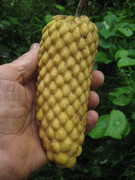
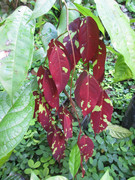
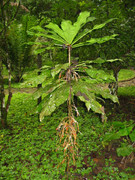
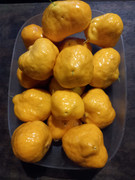
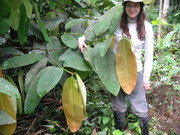
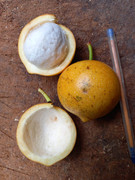
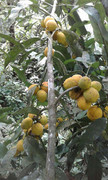
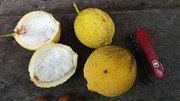
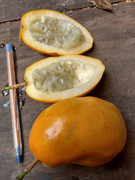
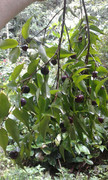
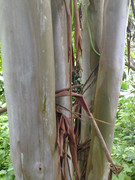
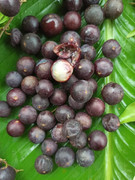
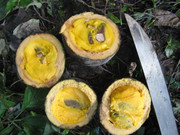
-Garcinia magnifolia "madroño" from the colombian chocó. $2 each
5-6 cm fruits, sweet to sub-acid. good edible pulp ratio, 26%.
- Garcinia sp. 'lindero' $2 ea
-Annona conica $3 each. tasty pulp.
-Porcelia nitidifolia from the peruvian amazon. nice sweet pulp. $2 each
-Clavija sp. from nearby at about 1800 m elevation. $1 each. unbranched, large leaves, ornamental and edible. seeds, and fruits, larger than other clavijas ive seen, like a small tangerine.
-Passiflora popenovii 'granadilla de quijos' $3 each
-Bactris guineensis $1 ea 'corozo'
-Eugenia victoriana $0.50 ea. aroma like yellow passion fruit
-Browneopsis ucayalina ornamental. $4 ea.
-soon- mulchi, giant mulchi, dwarf mulchi, Plinia nana, Myrciaria tenella
-soon- a new Myrtaceae, what i call Plinia(?) sp. ‘yasuni.’ it is from yasuní national park in the ecuadorian amazon. it is not P. yasuniana.
the purple fruits are 1-1.5 cm, sweet pulp is very highly aromatic and delicious. a great fruit. $3 ea
if you send an email to me to guaycuyacu at gmail i will send you information about ordering.













